Department News
"Education is the passport to the future, for tomorrow belongs to those who prepare for it today." Malcolm X

Department News
"Education is the passport to the future, for tomorrow belongs to those who prepare for it today." Malcolm X
English Incursions: Bell Shakespeare: Shakespeare Is Dead
The Elizabethan and Jacobean eras were an important moment in English history. During this time, the country developed into a great naval and economic power in the world. The population of London grew by 400% in the 1500’s, the economy boomed and London became known throughout Europe as a leading centre for art, literature, theatre and culture. In this dynamic and lively city, Shakespeare wrote his works for audiences ranging from the poor of London up to the reigning monarchs of Elizabeth I and James I.
Shakespeare, like many other writers of his era, drew ideas from other writers and many of his plays are based on earlier plays, histories, and poems. In total, he penned 37 plays and 154 sonnets. It is in Shakespeare’s plays that the first-ever recordings of over 2000 English words are contained, including words such as bump, bubble, manager, organ, relevant, critical, excellent, assassination and countless. Many phrases of Shakespeare’s are still found in our everyday sayings including ‘one fell swoop’, ‘vanish into thin air’, ‘in a pickle’, ‘foul play’, ‘tower of strength’, ‘flesh and blood’, ‘cruel to be kind’, and ‘wild goose chase.’
Relatively little is known about Shakespeare’s life after he left London and retired to the town of his birth, Stratford-Upon-Avon. It is recorded that he died in 1616 leaving his wife his “second best bed.” The shaky writing in his will suggesting he was very ill at the time of its revision. Shakespeare has no ancestors. Shakespeare’s son, Hamnet, died in 1596 and his daughter Susanna died in 1649. His youngest daughter Judith had three children, but all died before their mother and without children. His granddaughter Elizabeth, daughter of Susanna, died childless in 1670, thus ending his lineage.
Towards the end of Term 2, students in year 7 and 9 were fortunate to enjoy performances and seminars from the Bell Shakespeare company to develop their appreciation for and understanding of this great playwright. They were treated to the controversially titled Shakespeare Is Dead, written by Joanna Erskine. The show contains iconic scenes from ten of Shakespeare’s plays including the tragedies of Romeo and Juliet, Hamlet and Macbeth, the histories of Richard III and Henry V and comedies including The Taming of the Shrew, Much Ado About Nothing and A Midsummer Night’s Dream. The performance used extracts from these plays, energy and humour to explore how Shakespeare and his characters live on.
Structured in five acts, the students explored:
Act I: How to speak Shakespeare
Act II: How to fall in love in Shakespeare
Act III: How to fight in Shakespeare
Act IV: How to die in Shakespeare
Act V: How to survive in Shakespeare
The feedback from students was overwhelmingly positive. They enjoyed the humour and energy of the performers and acknowledged the way some of their preconceptions about Shakespeare had been challenged.
Below is a small selection of responses to the performance from girls in Year 7 and 9.
Describe Your Enjoyment of the Performance
What is something you have learned from this performance?
Natalia Hennessy & Clare Rose
Head of English Assistant Head of English
Welcome back to Term 3! In Science we look forward to a new term of learning, along with some excursions to enhance and allow greater depth of understanding.
Our Year 7 students are currently studying Ecosystems. In this unit, students explore and investigate the complex relationships involving food chains and food webs. Students will also be exploring the scientific system of classification, which allows scientists the world over, a universal language to communicate when identifying plants and animals. A combined Maths and Science excursion to the Zoo is planned in Week 3 which will also form the basis of a combined assessment task. Let’s hope the weather holds up!
Our Year 8 scientists are embarking on the atomic level of Chemistry and exploring the difference between Physical and Chemical changes of substances in terms of the arrangement of particles and reversibility of the process. They will investigate these changes in everyday situations. Students will also contrast elements, compounds and mixtures both in terms of their particle structures and behaviour.
Recently, Year 9 have explored the Electromagnetic spectrum and how visible light enables us to make sense of the world around us. It was even more exciting when they each had the opportunity to delve into the anatomy of the eye - a complex and intriguing organ - through cow eye dissections. This saw our Science classrooms full of an enthusiastic buzz, lots of screams and giggles as they were able to experience, first hand, how the diagram in their textbooks related to the eyes in front of them, as well as the complexities, our own eyes, possess.
Year 10 completed their Semester 1 studies exploring the world of Chemistry, taking the opportunity to understand how particles interact through chemical reactions with an array of different practical opportunities. Now, we see them begin to explore Biology, particularly the study of DNA and genetics. They will investigate how the mixture of different genes can result in a wide variety of characteristics, later leading to a nature vs nurture debate about why people look the way they do.
For our Year 11 students, they are moving into their final term of the course and students are being challenged in their chosen courses from Biology, Chemistry and Physics and are using their working Scientifically Skills to underpin all of their learning. Our Biologists will be attending a fieldwork excursion later in the term, to fulfil the requirements of the course.
Our Year 12 teachers are busily preparing the students for their Trial HSC exams and finalising courses. We wish our year 12 students the best of luck in their exams and hope they are able to perform to the best of their abilities.
Tess Waterhouse
Head of Science


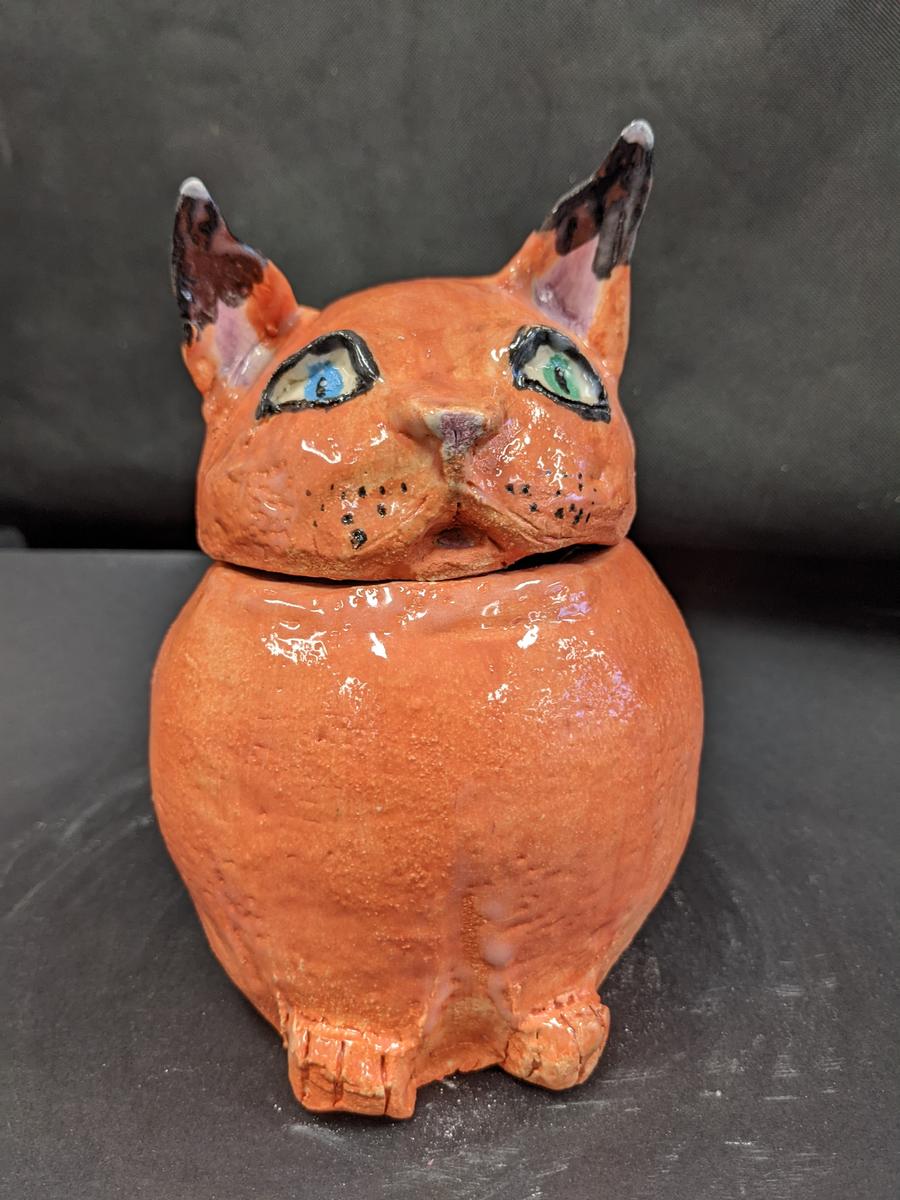
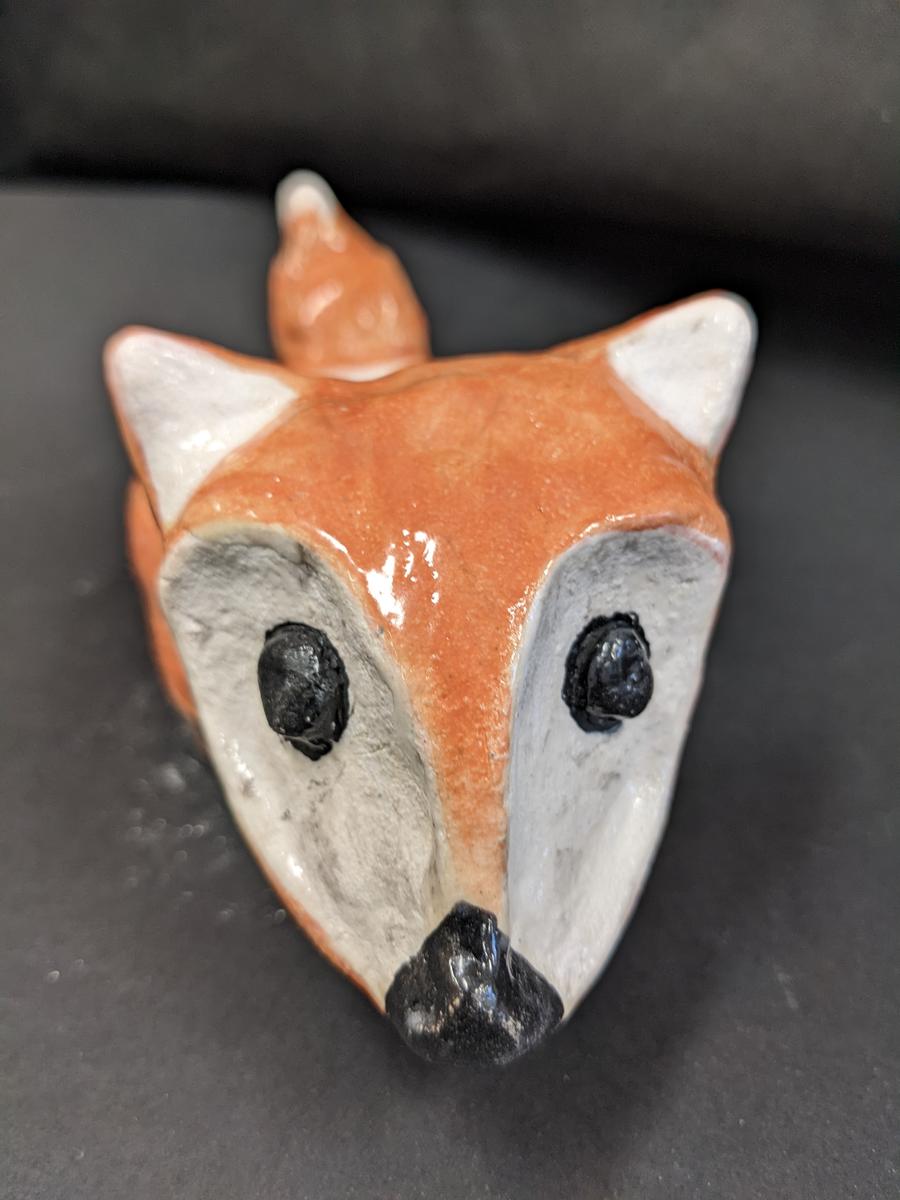

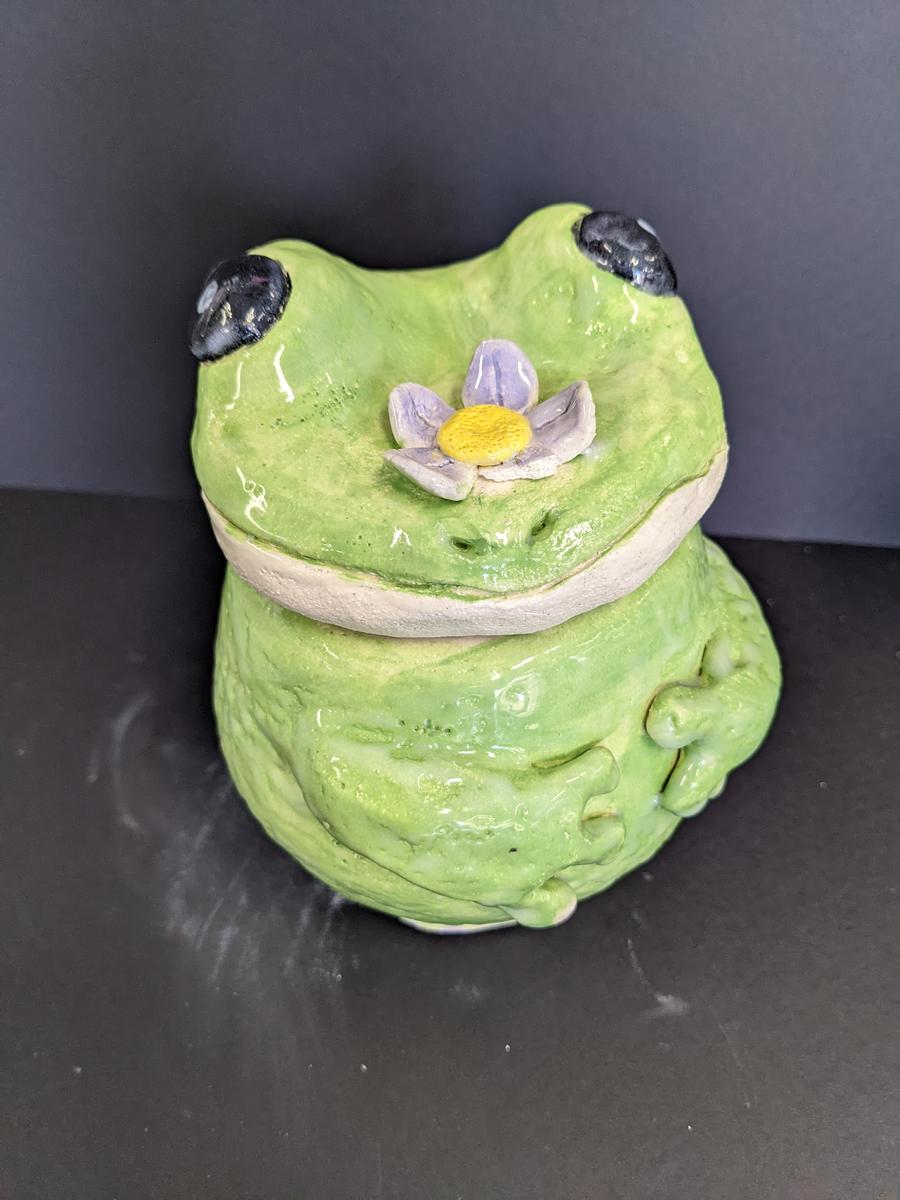

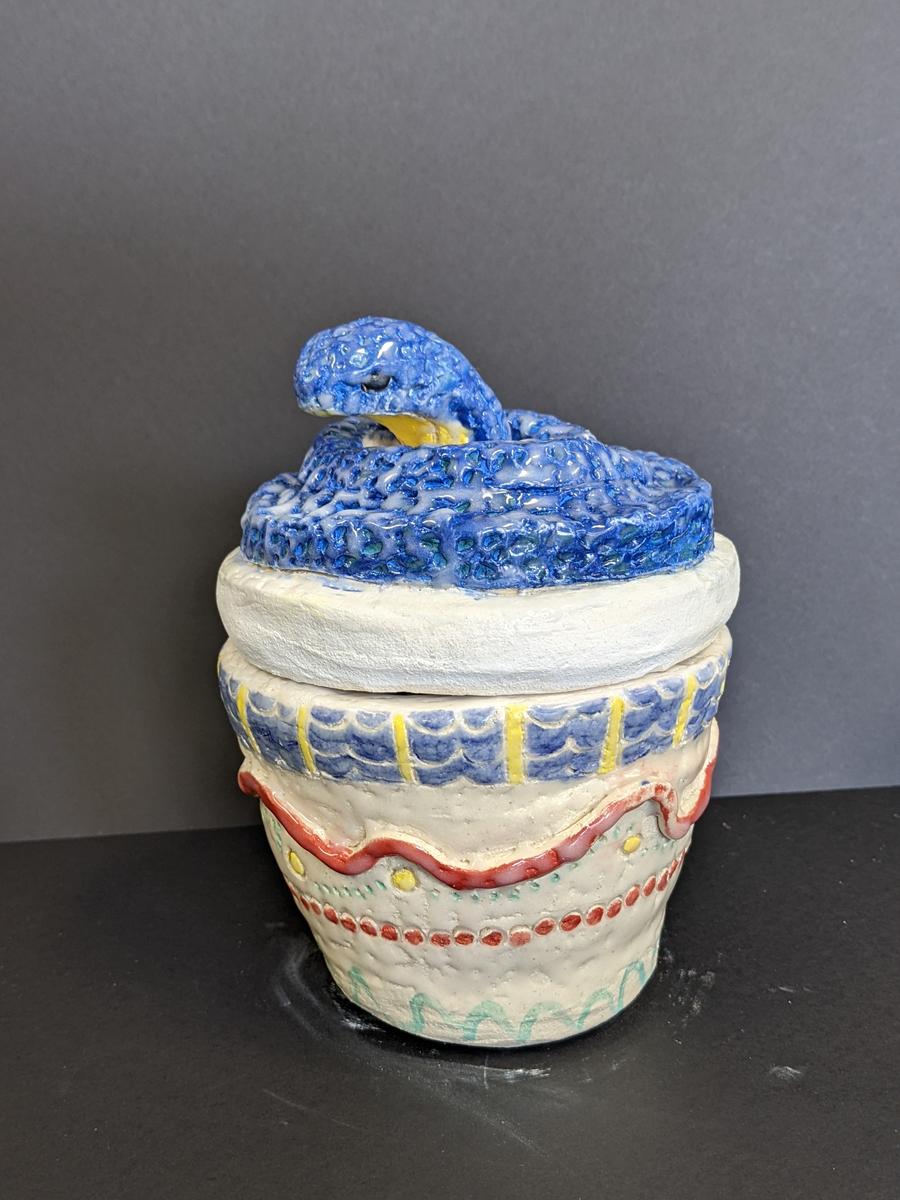

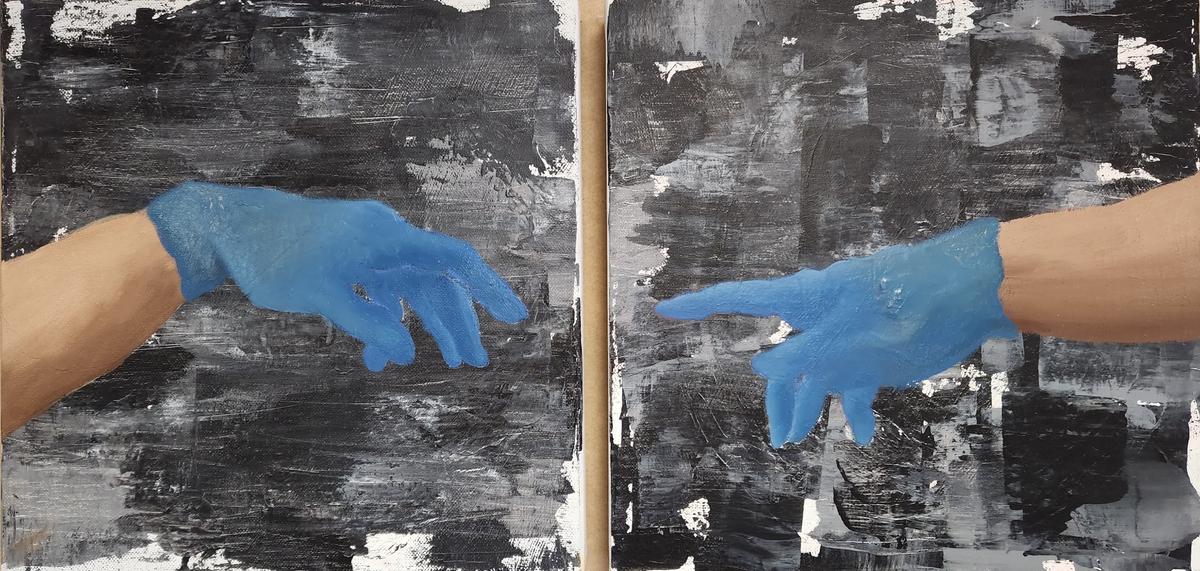
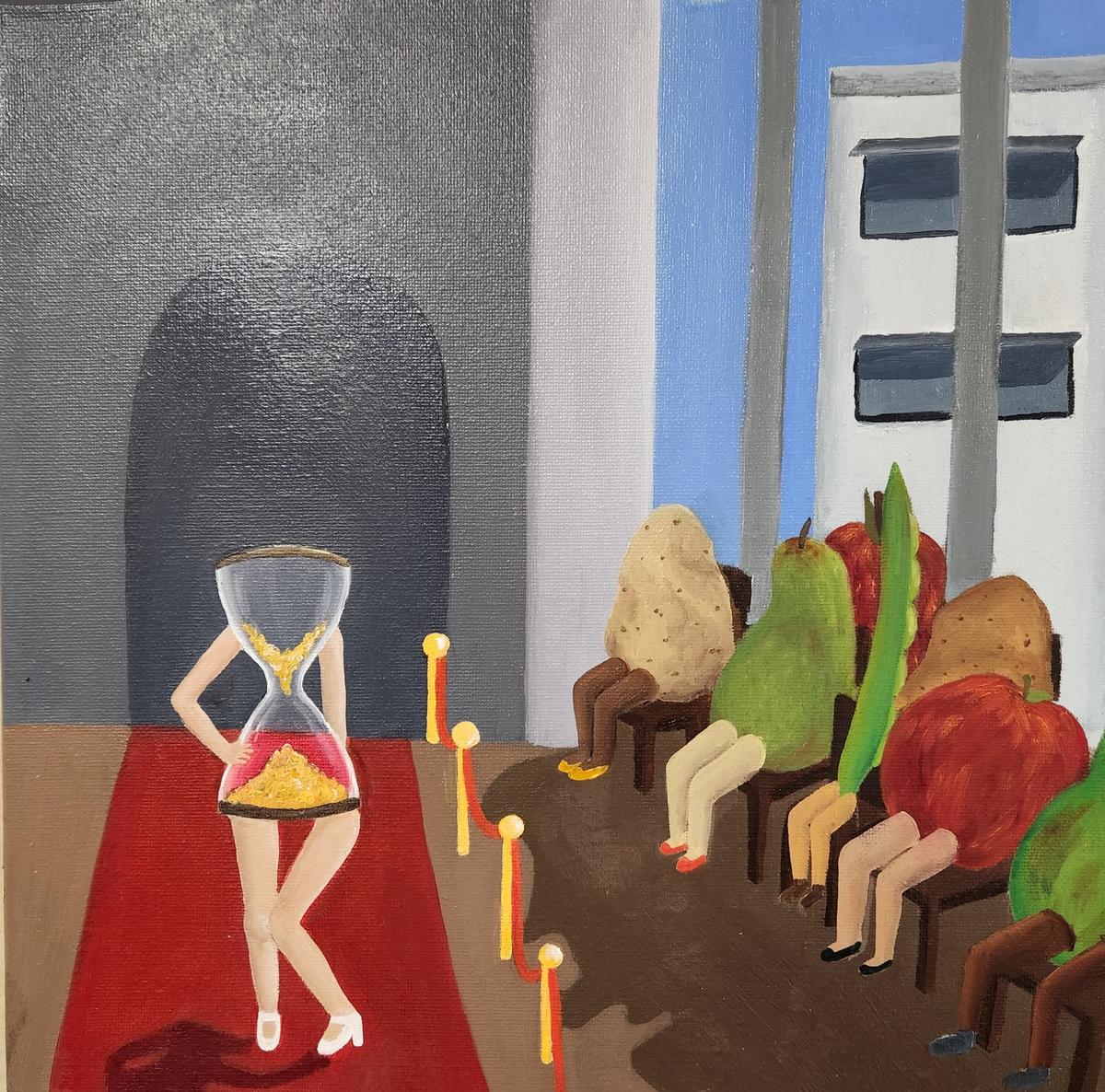











The Visual Arts Department is excited to welcome back our students to another term. As we farewell our Year 7 and Year 8 students from semester one, we extend an enthusiastic welcome to our new Year 7 and Year 8 classes as they kick off their journey in Visual Arts. We also wish to introduce a new teacher within our Department, Miss Koromhaz, who will be working closely with many of our Year 7 and Year 8 students for the rest of the year.
A huge congratulations to last term's Year 8 and Year 9 classes whose pots have all been successfully fired with outstanding results. You have each demonstrated excellent skills in ceramics and hope you all enjoyed the experience of working with this material. Please keep an eye out for future communication as to when your pots will be ready for collection to take home.
Year 10 Visual Arts has also found great success in their submission of Postmodern inspired artworks. We hope that you continue to push the boundaries of your artmaking and ideas as you move forward into the direction and production of a short film for semester two.
Over the holidays, our Year 11 Visual Arts students have been working hard on the designing and making of a stage backdrop in support of the Matilda Musical. With steady hands and creative minds you have collectively produced an excellent looking backdrop and are to be congratulated on your collaborative effort. Thank you to our Year 11 Visual Arts students for your wonderful support of our fabulous Drama and Music Departments.
Year 12 continue to draw closer to their final days at Brigidine College with HSC Trial Examinations right around the corner and final submissions of their Body of Work due later this term. The girls continue to work hard towards developing their artworks and they are coming together fabulously. The Visual Arts Department wishes our Year 12 girls all the best in their Trial Examinations and good luck. You’ve got this!
Melissa Nutter
Head of Visual Arts (Acting)